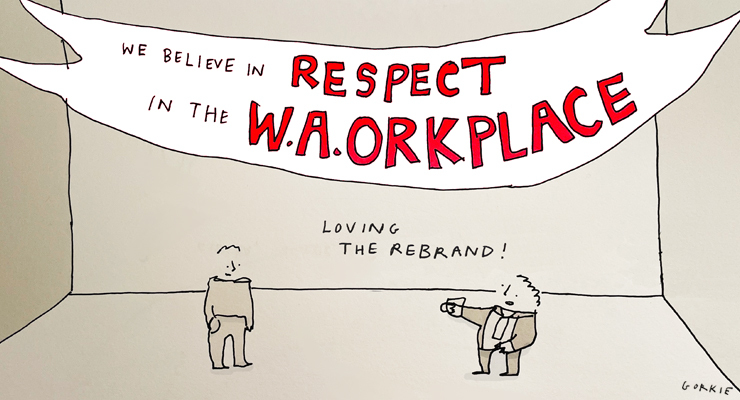
The politics of the week has been dominated by debates over Labor’s giant industrial relations bill, explored in greater detail elsewhere in Crikey today. Among the bill’s chief aims is to implement some of the recommendations of the Respect@Work report that was delivered way back at the beginning of 2020 and pretty much ignored by the Morrison government until the toxic nature of Parliament made that politically impossible.
But what of the recalcitrants in Western Australia? Fair Work is federal legislation that covers the vast majority of private sector employees in Australia, but WA is the only state to not completely refer its powers over industrial relations in the 16 years since WorkChoices, and thus holds on to the employees of smaller businesses, primarily those set up as sole traders or partnerships (i.e. not Pty Ltd companies). The changes made to the Fair Work Act — assuming they go through — wouldn’t apply to workers at those businesses.
There are no precise figures available regarding precisely how many employees this leaves in the state system. A spokesperson for the state government estimated that “currently the state system covers approximately 21.7% to 36.2% of the employees in Western Australia”. That figure would include between 150,000 and 200,000 public servants, who have their own separate set of workplace regulations.
Further, because the state system is largely made up of small businesses, they almost certainly fall below the required employee headcount to be covered by the reporting requirements of the Workplace Gender Equality Agency. So are they going to miss out on the new protections?
It’s important to note that the WA government hasn’t been inactive in this area — early this year it put through changes that cover similar areas to some of those currently being pursued by the federal government, giving the Western Australian Industrial Relations Commission power to implement “stop bullying” and “stop sexual harassment” orders in line with Respect@Work.
But in other ways, the state industrial relations system offers noticeably less than the new federal system, most notably on domestic violence leave. The entitlement at a federal level has been, since October, 10 paid days. At the state level it’s just five, and it’s still unpaid.
The government spokesperson said the state government would “consider if amendments made to the Fair Work Act 2009 are appropriate for the state industrial relations system”.
This article has been updated to include comments from the WA government.








Charlie, there are swings and roundabouts, as with everything where the state has retained powers.
Domestic violence leave is a new idea. WA implemented it first, at 5 days, earlier this year. And now it will consider the 10 days.
Diversity can be a great strength in our federal system, learning from the best and pulling up.
National consistency can lead to a lowest common denominator.